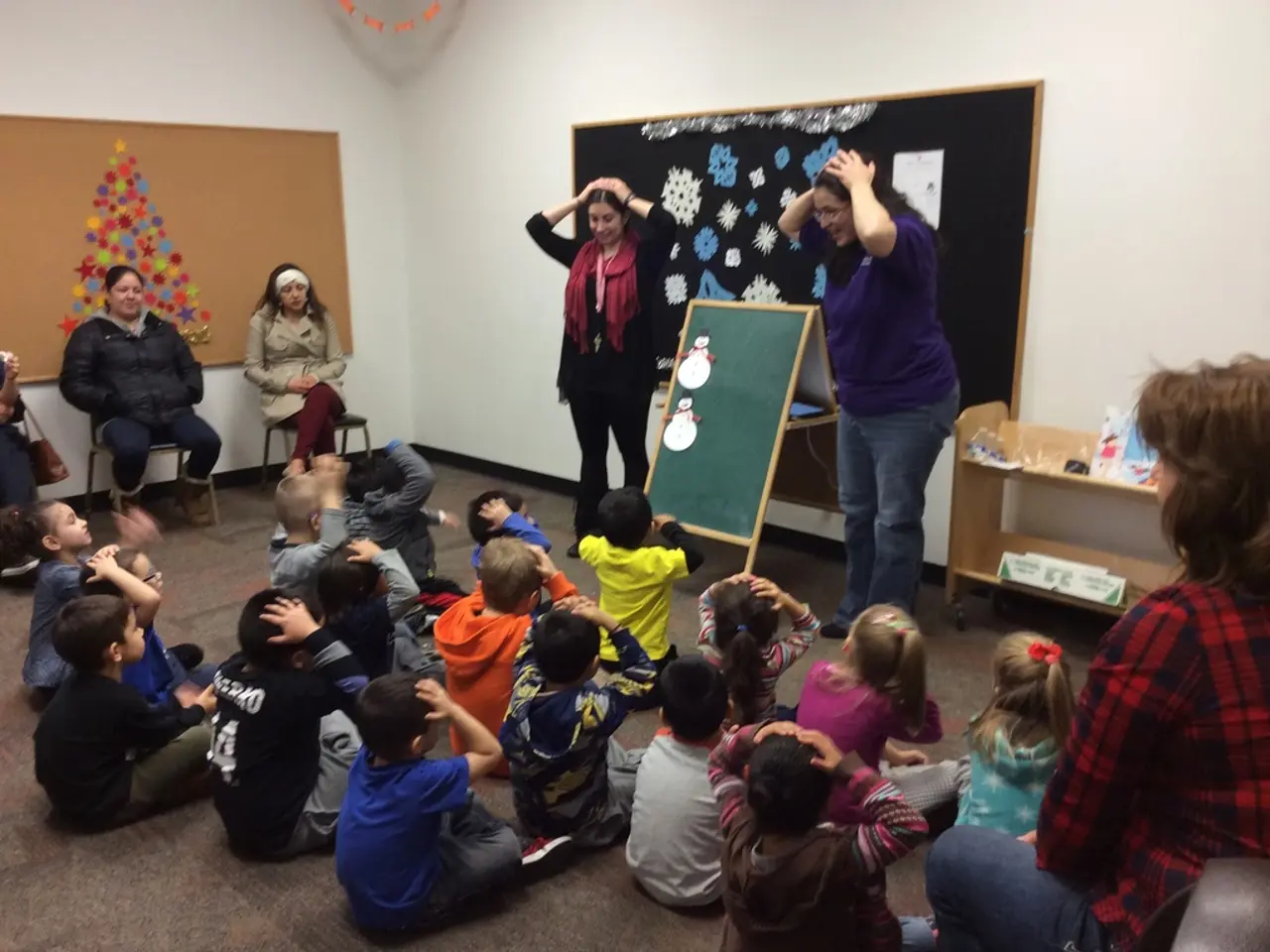Activities Conducted in Day Care Facilities
In the heart of Germany's educational landscape, kindergarten educators, often referred to as pedagogues or early childhood educators, play a pivotal role. Their mission is centered around the individual promotion of children, observing their strengths, wishes, and needs.
These dedicated professionals wear many hats, acting as playmates, psychologists, spiritual counselors, and teachers. They navigate the unique challenges that come with nurturing young minds, all while striving to create an environment that fosters growth and learning.
However, the profession comes with its own set of challenges. Communication with parents can sometimes be challenging, as some parents struggle to find a balance between allowing their child the freedom to explore and maintaining a structured routine. On the other hand, some parents may tend to make too many decisions for their child, which can hinder the child's independence.
When it comes to remuneration, the average salary for kindergarten educators in Germany typically ranges from 30,000 to 40,000 euros gross annually. While this aligns with general European data for pre-primary teaching professions, it is lower than the salaries for primary and secondary school teachers. For instance, in Italy, kindergarten and primary teachers earn around 36,200 euros gross annually, while middle school and high school teachers earn from about 38,500 to 41,000 euros.
Tanja Voßen, an area manager of a kindergarten provider, emphasizes the need for flexibility and constant learning in the profession. She notes that the salary for kindergarten educators has improved compared to other training professions over the past ten years. However, she also acknowledges that compared to other pedagogical professions like teachers, the salary differences are still vast.
Empathy is essential for kindergarten educators, as they navigate the unpredictable and heartwarming daily routines in a kindergarten. Yet, the profession is not without its burdens. The lack of staff, high workload, immense pressure, and constant exposure to viruses can be overwhelming.
Moreover, there is a major structural shortage of kindergarten professionals throughout Germany, with over 2,000 professionals needed by the end of the decade. Regional differences exist, with some eastern federal states seeing a decline in child numbers while the staff shortage in the western part of the country is enormous.
Despite these challenges, kindergarten educators find motivation in shaping the children's future and enjoying the little, heartwarming moments with them. Federal politics recognise the importance of kindergartens and education, but Doreen Siebernik believes there is still a lot to be done. She maintains that the phase up to the age of eight is when children learn the most, making well-trained professionals in kindergartens crucial.
In conclusion, kindergarten educators play a vital role in shaping the future of young minds. However, the profession is faced with challenges such as low salaries, staff shortages, and regional differences. Despite these hurdles, the dedication and empathy of kindergarten educators continue to make a significant impact on the lives of children.
Although their primary role is in early childhood education, kindergarten educators often find themselves engaging in personal growth and learning, adapting to the ever-changing needs of the profession and children. With empathy at the core of their work, these professionals strive for education-and-self-development, not just for the children, but for themselves as well, navigating the challenges that come with nurturing young minds and ensuring a brighter future for all.




